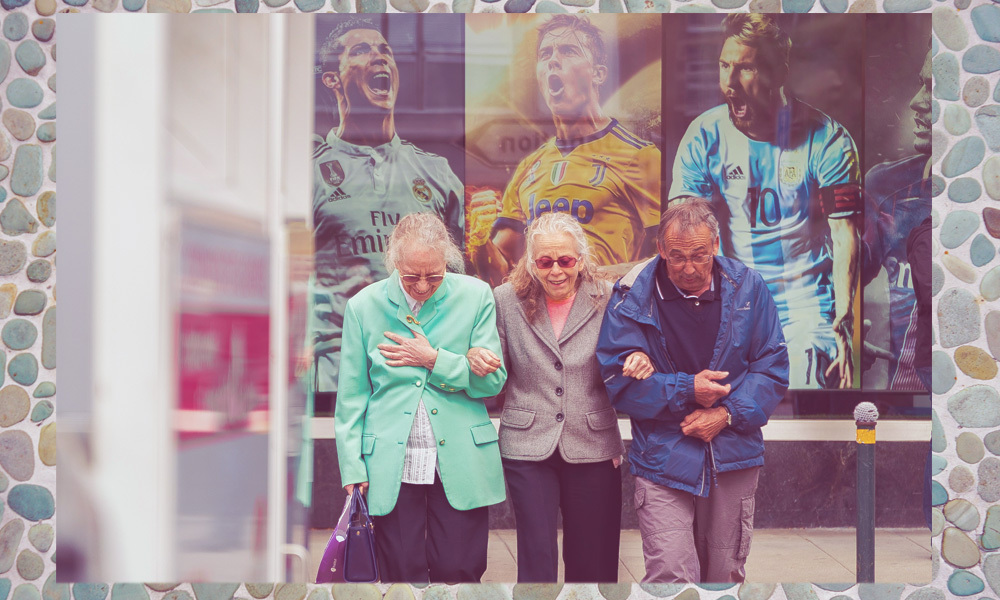
6 Common Challenges Faced by Nursing Home Residents
Solutions for enhancing nursing home residents' quality of life.
Nursing homes and assisted living communities provide excellent care for seniors who are unable to remain independent. But, many nursing homes have numerous challenges that prevent them from providing the best care possible.
When given the proper care, nursing home residents can achieve and maintain a high level of living. Achieving success as an administrator requires clear communication of objectives to families and the development of plans to address the following obstacles. This article will go over some of the most typical problems that people in nursing homes encounter and how to fix them.
1. Care Quality

Residents' happiness and health are impacted by the wide range of quality of care offered in nursing homes. The quality of care provided to residents can be compromised by issues like understaffing, inadequate training, and lack of oversight. In addition, fragile elderly people can suffer greatly as a result of cases of abuse or neglect.
2. Communication Barriers

When it comes to nursing home residents' wants and preferences, good communication is key. However, people may have trouble expressing themselves and expressing what they want due to communication hurdles such as:
-
Language challenges
-
Hearing loss
-
Cognitive decline
Residents and caregivers may experience irritation and misunderstandings as a result of this approach. It's important to help them by providing assistive technology like smartphones for deaf and HoH, infrared listening systems, and audio/video transcriptions.
3. Loneliness and Social Isolation

Among those residing in nursing homes, feelings of loneliness and isolation rank high. Many seniors suffer from despair and anxiety due to a lack of social support from their relatives and communities. Residents' mental and emotional well-being can be greatly affected by a lack of meaningful relationships and limited opportunities for social engagement.
To combat loneliness, nursing homes can implement various initiatives such as:
-
Organizing social events
-
Recreational activities
-
Group outings
To increase residents' well-being and reduce feelings of loneliness, it is important to provide them with the opportunity to have meaningful conversations and make friends.
4. Medication Management

Older people with numerous chronic diseases often find drug management to be particularly challenging. Medication administration accuracy and timeliness are two areas where nursing home patients frequently put their trust in caregivers. Negative drug reactions and other health problems might arise, nevertheless, due to medication mistakes and misunderstandings.
To ensure safe medication management, nursing homes should implement the following:
-
Robust medication reconciliation processes
-
Train staff members on proper medication administration techniques
-
Regularly review residents’ medication regimens with healthcare providers
Improving medication adherence and decreasing medication administration errors are two additional benefits of using technology like electronic drug administration records (eMAR).
5. Mobility and Independence

The health and happiness of nursing home residents depend on their ability to move around and be independent as much as possible. However, residents' mobility and independence are frequently limited by physical restrictions and chronic health issues. Physical function declines and the risk of injury rises when movement is limited. In some cases, aging people think they need to move to a nursing home solely because they’re worried they’ll find themselves in a ‘I've fallen and I can't get up’ situation. However, in that case, using a life alert system that allows them to stay in their home would make more sense, since a feeling of independence can have a big impact on a person’s happiness.
Rehabilitation services, mobility aids, and assistive equipment are ways in which nursing homes can help their clients overcome this barrier and keep or regain mobility. Physical therapy and exercise programs can also aid residents in building muscle, enhancing balance, and improving coordination.
6. Nutritional Concerns

For the sake of their health and vigor, nursing home residents must maintain sufficient nourishment. Problems with swallowing, changes in appetite, and other dietary constraints can make it hard for the elderly to get the nutrients they need. Malnutrition and other health problems can be exacerbated by poor food choices and meal planning.
When it comes to residents' dietary needs and preferences, nursing homes can do a lot to alleviate nutritional worries by providing a wide range of healthy meal alternatives. Residents may be sure they are getting enough nutrition by working with nutritionists and dietitians to create individualized meal plans.
Residents' nutritional condition can be improved overall through assistance with feeding and the implementation of programs to improve dental health.
Empower Nursing Home Residents
Numerous difficulties influence the mental, emotional, and social health of people residing in nursing homes. To overcome these obstacles, we need a comprehensive strategy that puts residents first, encourages them to be self-reliant, and creates a welcoming space for all.
If you want your loved ones to experience innovative solutions, best practices, and proper care and treatment, check out nursing homes Sydney. You will see that nursing home facilities in this place can empower residents to lead fulfilling lives and enhance overall quality of life.











